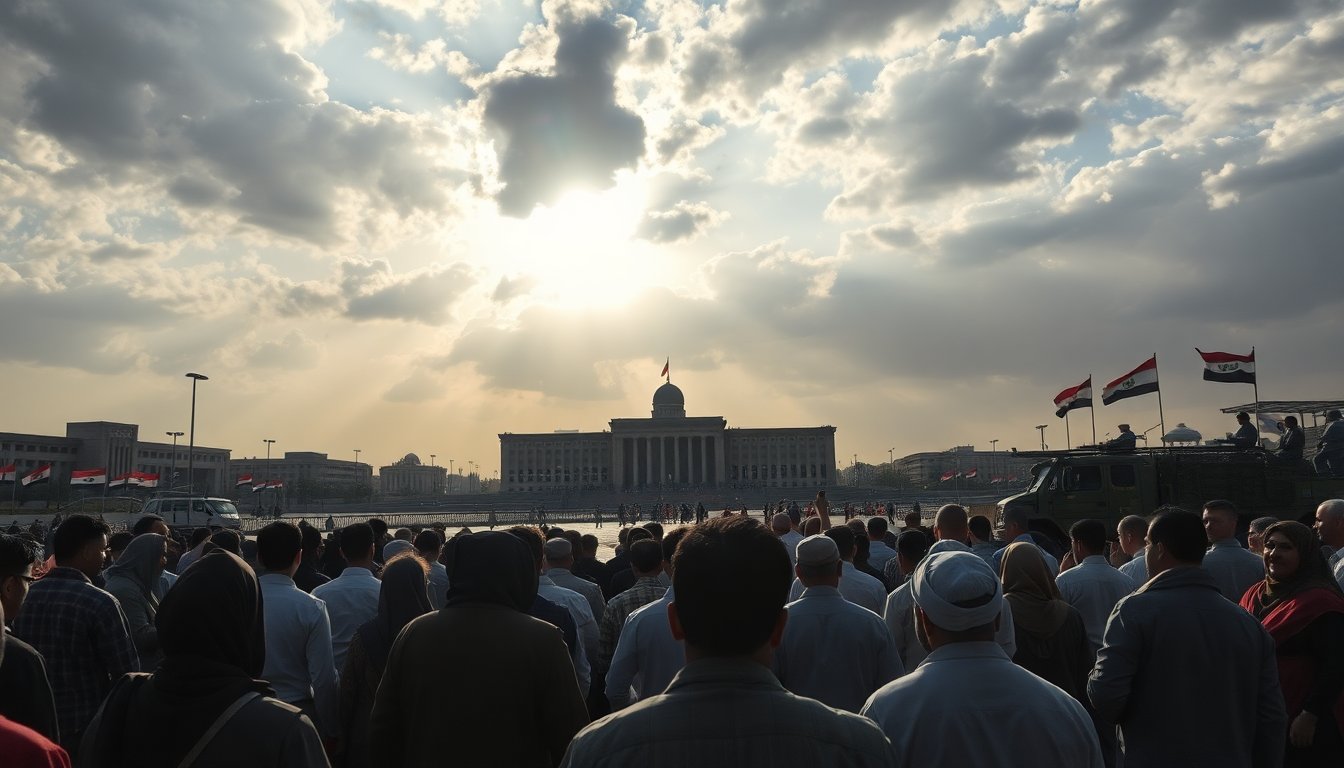Table of Contents
“`html
The political landscape in Iraq is increasingly precarious, with Prime Minister Mohammed Shia al-Sudani facing the daunting challenge of maintaining national stability while navigating the conflicting interests of the United States and Iran. As his re-election approaches, al-Sudani’s leadership is tested amidst rising tensions in the region, particularly with Israel‘s military actions against Iranian targets.
Iraq has long been a battleground for external powers, and the simmering conflict between Iran and Israel has direct implications for the Iraqi state. With U.S. military personnel present and Iranian-backed militias operating within its borders, Iraq finds itself at a crossroads, attempting to assert its sovereignty while grappling with powerful external influences.
Geopolitical pressures on Iraq
The recent escalation between Israel and Iran has placed Iraq in an uncomfortable position. With Israeli jets and Iranian missiles flying over its territory, the Iraqi government is under substantial pressure to maintain neutrality. The withdrawal of some embassy personnel from the U.S. illustrates the extent of concern regarding Iraq’s security amidst these tensions, as U.S. officials recognize the potential danger to their interests in the region.
Internal conflicts and challenges
One of the most significant challenges al-Sudani faces is the influence of the Popular Mobilization Forces (PMF), a coalition of mostly Shiite militias that have been integrated into Iraq’s security framework. Formed in response to the rise of ISIS, these groups have increasingly asserted their autonomy, often acting counter to the Iraqi government’s directives. Their calls for the removal of U.S. troops demonstrate a clear divergence from al-Sudani’s security partnership with Washington.
The PMF’s hardline factions have grown emboldened, particularly in light of the ongoing conflict between Israel and Iran. Following the U.S. drone strike that killed Iranian General Qasem Soleimani, anti-American sentiment among these groups has surged, and they view U.S. forces as legitimate targets in their resistance against perceived Israeli aggression.
The complexities of sovereignty
Iraq’s geographical position as a conduit for both Iranian and U.S. interests complicates its path to true sovereignty. Hosting approximately 2,500 U.S. troops while simultaneously accommodating Iranian-influenced militias presents a paradox. As al-Sudani attempts to balance these relationships, the PMF’s rhetoric has become increasingly hostile, threatening military action against U.S. assets in response to Israeli operations.
Impacts on Iraqi stability
Amidst this turbulent backdrop, Iraq’s own security capabilities are under scrutiny. Despite recent investments in modernizing its air defense systems, the country remains vulnerable to airspace violations. The inability to counter high-speed threats, such as those posed by Israeli aircraft, raises concerns about the integrity of Iraqi sovereignty.
In an effort to address these issues diplomatically, al-Sudani has communicated Iraq’s rejection of its territory being used for attacks against neighboring states. However, the effectiveness of these diplomatic overtures is limited, especially when U.S. strategic interests appear to overshadow Iraqi sovereignty.
Energy dependence and regional stability
Iraq’s reliance on Iranian natural gas for electricity adds another layer of complexity to its geopolitical standing. With one-third of its electricity generated from Iranian sources, any disruption in these supplies could lead to widespread blackouts and social unrest. The delicate balance between maintaining energy supplies and asserting independence from Iran becomes increasingly tenuous as regional tensions escalate.
The U.S. also faces a dilemma in its relationship with Iraq. While officials express a commitment to supporting Iraqi sovereignty, actions such as facilitating Israeli military operations raise questions about the true extent of U.S. involvement. The ongoing conflict has the potential to shift U.S. military focus from combating ISIS to a self-defense posture, which could have dire consequences for Iraq’s security and stability.
As Iraq continues to navigate the treacherous waters of international politics, the leadership of al-Sudani will be crucial in determining the nation’s future. The interplay of U.S. and Iranian interests, along with internal pressures from the PMF, places Iraq at a critical juncture that could define its sovereignty and stability for years to come.
“`


